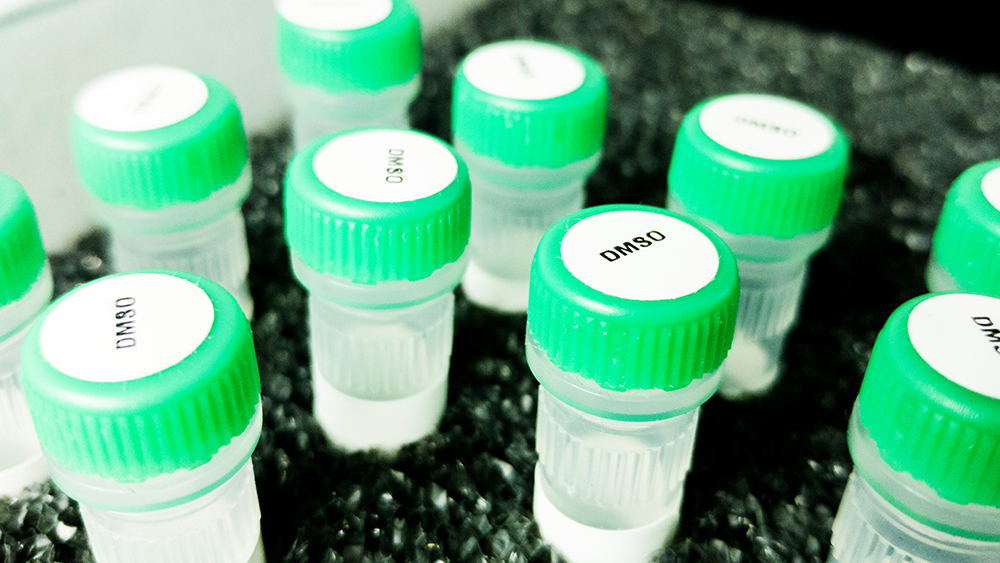DMSO: A game-changer in the treatment of infectious diseases
01/07/2025 / By Willow Tohi

- Dimethyl sulfoxide (DMSO) is a naturally occurring sulfur-based compound with antioxidant, antimicrobial, antiviral, antifungal and antiparasitic properties, making it effective against a wide range of infections and chronic conditions like pain and tissue injuries.
- DMSO disrupts bacterial cell membranes, enhancing the effectiveness of antibiotics and addressing antibiotic-resistant infections, such as tuberculosis and chronic osteomyelitis.
- DMSO inhibits viral replication and boosts immune responses, showing promise in treating herpes, shingles and feline panleukopenia, while also enhancing antifungal treatments for infections like athlete’s foot.
- DMSO mitigates bacterial toxins and reduces inflammation, improving outcomes in severe conditions like sepsis, pneumonia and acute respiratory distress syndrome (ARDS).
- While generally safe, medical-grade DMSO should be used with caution in specific populations (e.g., pregnant women, individuals with liver/kidney conditions), and consultation with a healthcare professional is recommended.
In the ever-evolving world of natural health, dimethyl sulfoxide (DMSO) has emerged as a powerful and versatile tool in the fight against infectious diseases as well as a useful tool for relieving chronic pain. This naturally occurring compound, once relegated to the sidelines of mainstream medicine, is now gaining recognition for its remarkable antioxidant, antimicrobial, antiviral, antifungal and antiparasitic properties. From treating stubborn bacterial infections to addressing life-threatening conditions like sepsis and tuberculosis, DMSO is proving to be a transformative agent in the realm of infectious disease management.
What is DMSO?
DMSO is a colorless, sulfur-based compound derived from wood pulp. Known for its ability to penetrate biological membranes, it has been used for decades as a solvent and carrier for medications. However, its therapeutic potential extends far beyond its role as a delivery agent. DMSO possesses unique properties that make it effective against a wide range of pathogens, including bacteria, viruses, fungi and parasites, as well as autoimmune disorders, chronic pain and tissue injuries. It can be taken orally, used topically or given intravenously.
Broad antimicrobial properties
One of DMSO’s most significant contributions to infectious disease treatment lies in its ability to combat antibiotic resistance. As bacteria increasingly develop resistance to conventional antibiotics, DMSO offers a promising solution. It can disrupt bacterial cell membranes, making pathogens more susceptible to antibiotics. This property is particularly valuable in treating infections like tuberculosis, which often develop resistance to multiple drugs.
DMSO also enhances the effectiveness of antimicrobial agents by delivering them deep into tissues and organs that are typically difficult to access. For example, it has been used to treat osteomyelitis (bone infections) and peritonitis (abdominal infections), conditions that often require invasive procedures or prolonged hospitalizations.
Antiviral powerhouse
DMSO’s antiviral properties have been extensively studied, particularly in the treatment of herpes and shingles. Research shows that DMSO, when combined with antiviral medications like idoxuridine (IDU), significantly reduces the duration of herpes outbreaks and alleviates the pain associated with shingles. In some cases, it has even prevented the development of post-herpetic neuralgia, a debilitating complication of shingles.
Beyond herpes, DMSO has shown promise in treating other viral infections, including feline panleukopenia, a deadly disease in cats. Its ability to inhibit viral replication and enhance the immune response makes it a valuable tool in the fight against viral diseases.
Fighting fungal and parasitic infections
DMSO’s antifungal properties make it effective against challenging fungal infections like athlete’s foot and ringworm. When combined with antifungal agents, it enhances their penetration into infected tissues, leading to faster and more complete recovery.
In the realm of parasitic infections, DMSO has been used to treat conditions like hookworm and amoebic liver infections. Its ability to deliver antiparasitic medications deep into tissues makes it a valuable adjunct in the treatment of these often stubborn infections.
Addressing severe infections
DMSO’s potential extends to life-threatening conditions like sepsis, a severe immune response to infection that can lead to organ failure and death. By mitigating the harmful effects of bacterial toxins and enhancing the immune response, DMSO has been shown to improve outcomes in septic patients.
It has also been used to treat severe lung infections, including pneumonia and acute respiratory distress syndrome (ARDS). By improving circulation and reducing inflammation, DMSO helps the body fight off these infections more effectively.
A natural solution for chronic infections
Chronic infections, such as those caused by antibiotic-resistant bacteria or persistent viruses, are a growing concern in modern medicine. DMSO’s ability to break down biofilms – protective layers that shield bacteria from antibiotics – makes it particularly effective in treating these stubborn infections.
For example, DMSO has been used to treat chronic osteomyelitis, a bone infection that often requires surgery or amputation. By delivering antibiotics directly to the infected bone, DMSO has enabled patients to avoid these drastic measures and achieve full recovery.
Safety and considerations
While DMSO is generally safe when used correctly, it is essential to follow proper guidelines. Medical-grade DMSO should always be used, as industrial-grade products may contain harmful impurities. Side effects, such as skin irritation or a garlic-like odor, are typically mild and temporary.
However, DMSO should be used with caution in certain populations, including pregnant or breastfeeding women and individuals with liver or kidney conditions. Consulting a healthcare professional before use is recommended, especially when combining DMSO with other medications.
Conclusion
DMSO’s multifaceted properties make it a game-changer in the treatment of infectious diseases. From combating antibiotic resistance to enhancing the effectiveness of antimicrobial agents, it offers a natural and effective solution for a wide range of infections. As research continues to uncover its full potential, DMSO is poised to become a cornerstone of infectious disease management, offering hope to patients and healthcare providers alike.
For those seeking natural alternatives to conventional treatments, DMSO represents a powerful and versatile option. Whether used alone or in combination with other therapies, it has the potential to transform the way we approach infectious diseases, paving the way for safer and more effective treatments.
Sources include:
Submit a correction >>
Tagged Under:
alternative medicine, Antimicrobial, antioxidant, antiviral, Cures, healing, infections, natural antibiotic, natural cures, natural medicine, natural remedies, pain relief, prevention, remedies
This article may contain statements that reflect the opinion of the author
RECENT NEWS & ARTICLES
COPYRIGHT © 2017 NATURAL MEDICINE NEWS



















